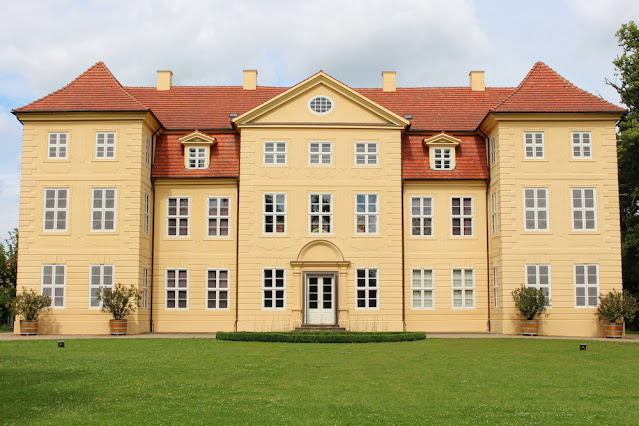Where Queens Come From: Discovering Schloss Mirow

Truth be told, I haven't done a lot of castle hunting in Germany's most north-eastern state of Mecklenburg-Vorpommern. I have been to the Schloss in Schwerin and that's about it. As its name suggests, Mecklenburg-Vorpommern consists of two entities who do not share a lot of common history. Mecklenburg consists of the two former (Grand) Dukedoms of Mecklenburg-Strelitz and Mecklenburg-Schwerin as well as the part of the former Prussian province of Pommern that stayed German after the Second World War. Mecklenburg was for most of its history somewhat of a backwater without much political influence. Friedrich II of Prussia actually went so far as to call the Mecklenburg royals living at Schloss Mirow plain, uneducated and hilarious after visiting during the 1730's and coined the derogatory term ' Mirokesen '. But - depending on how well you know marriage politics of the European monarchies prior to World War I - what are small and insignificant but reigning hous...


